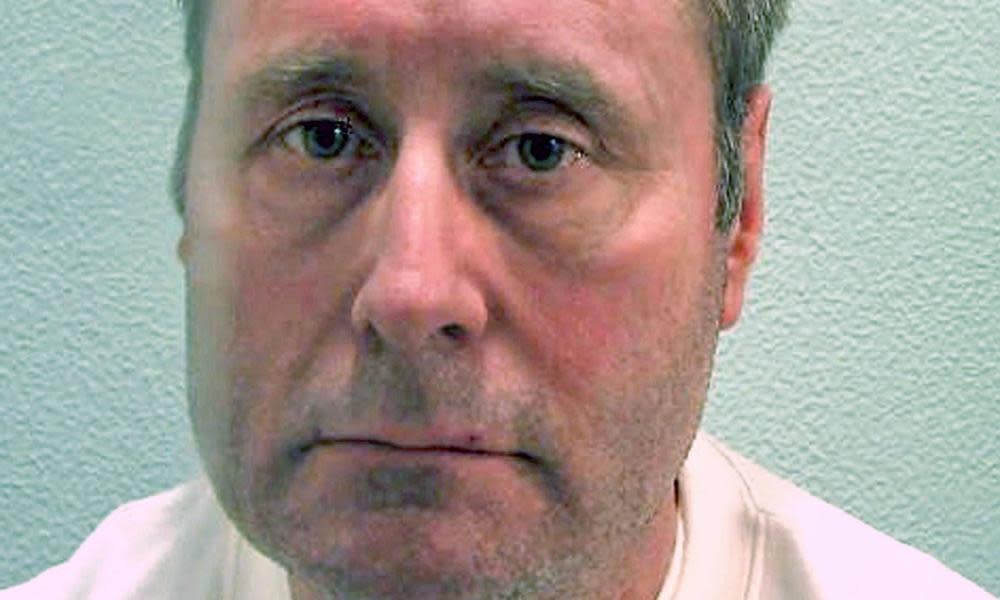John Worboys must stay in prison, says Parole Board

The serial sex attacker John Worboys must stay in prison, the Parole Board has ruled, in a decision that reverses an earlier move to release him that sparked a public outcry and cost the organisation’s chair his job.
The black-cab driver, who was convicted of assaults on 12 women in 2008, had been granted his freedom in January after the board accepted his claim that he no longer posed a risk to the public.
After public fury at the decision, the high court ordered the board to carry out a “fresh determination” into the case and for Worboys to remain in prison in the interim. On Monday, the board said the reassessment had been completed and the serial rapist would remain behind bars.
The decision – greeted as “vindication” by one of the two anonymous victims who challenged the original move to release him – marks a conclusion to a deeply controversial episode that raised questions over the reliability of the parole process and the Ministry of Justice’s role in supporting it.
The high court ruling had been damning of the original parole board decision, saying that “the credibility and reliability of [Worboys’] account was not probed to any extent, if at all” at last November’s parole hearing.
In the aftermath, the parole board chair, Nick Hardwick, was forced to resign. He then accused the justice secretary, David Gauke, of failing to take responsibility over an inadequate dossier provided by the ministry of justice.
“I didn’t resign willingly, I resigned because the justice secretary said I had no choice,” he said. “I accept that the Parole Board was at fault in these matters. I don’t accept we were any more at fault than the Ministry of Justice and I don’t believe the right lessons will be learned from this case if the only people accepting any responsibility for the things that went wrong here is us.”
Worboys, who now goes by the name John Radford, was jailed indefinitely in 2009 with a minimum term of eight years after being found guilty of 19 offences, including the drugging, sexual assault and rape of late-night passengers, committed against 12 victims. Worboys has served 10 years and nine months in jail.
However, police believe he committed 105 sexual offences against women between 2002 and 2008, when he was caught, using his taxi to pick up victims before drugging them with champagne laced with sedatives.
In its decision summary, the Parole Board said it had considered a 1,255-page dossier prepared by the justice secretary and seven personal statements by victims detailing the continuing impact of his crimes.
It found “risk factors associated with Mr Worboys, including sexual preoccupation, a sense of sexual entitlement, his attitudes towards women (including a need to have sexual contact with women and to control women), a belief that rape is acceptable, alcohol misuse and problems with relationships”.
The board said witnesses had described “positive behaviour” by Worboys since his last custody review but that they did not support release or moving him to an open prison. The release of the summary of the decision is a relatively new development.
It was only in May that members of the public became able to request such summaries detailing why a prisoner had or had not been released after the uproar over the original decision relating to Worboys was exacerbated by the lack of information as to why it had been taken.
Reacting to the reassessment by the Parole Board, one of the two unnamed women who brought the case said: “I feel vindicated, we were right all along and didn’t make it up. We knew this man was a danger to women and we felt compelled to take action. It was the right decision for us to act and thank goodness we did.”
Harriet Wistrich, a solicitor at Birnberg Peirce, who represented the two women, said she was not surprised the board had changed its mind. “As the court made clear, the Parole Board should take into account what was known of his alleged wider offending.”
The controversy over the decision was compounded by the Parole Board’s failure to inform all of Worboys’ victims that he was to be released or to consult them on the terms of his release licence.
For Worboys’ victims, last November’s parole decision was the latest in a series of failings relating to the case. Before his arrest, the complaints of women were repeatedly ignored, allowing him to continue offending.
The failures in Worboys’ case and that of serial rapist Kirk Reid, identified by the Independent Police Complaints Commission (now the Independent Office for Police Conduct) led the Metropolitan police to overhaul the way it investigates serious sexual assaults.
Katie Russell, a spokeswoman for Rape Crisis England and Wales, said the right decision had been reached belatedly. “At the very least, when an offender is convicted of such serious crimes, adequate measures must be taken to minimise the potential further harm they can cause,” she said.
There was also criticism of the Crown Prosecution Service for not bringing further criminal proceedings in relation to complaints made by up to 100 women who came forward after the 2009 trial.
After details of the initial Parole Board decision emerged in January, a group of women got in touch with the police to make allegations against Worboys dating to 1997. The allegations being investigated include sexual assault and administering a substance with intent to commit a sexual offence. He has since been questioned by police about the investigations, the Guardian understands.
A spokeswoman for the board said on Monday: “We can confirm that a panel of the Parole Board gave a negative decision in the parole review of John Worboys following a paper hearing in October 2018.”

 Yahoo News
Yahoo News 
